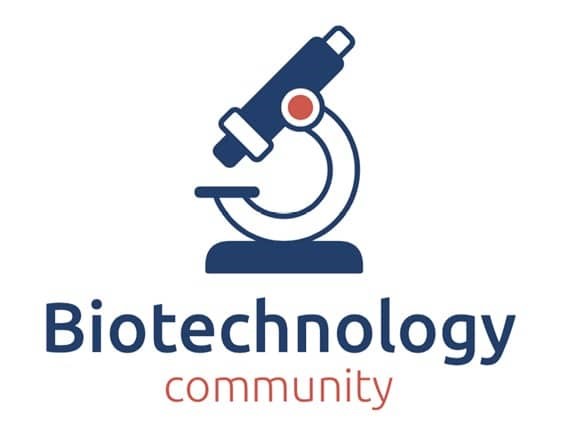Student club
Club “BioTech Community”
Club leader
Korotetsky I.S.
Раз в неделю
General provisions
- The BioTech Community Club of the International University of Engineering and Technology (hereinafter referred to as the Club) is a student club of the Department of Biochemical Engineering of METU (hereinafter referred to as the Club), membership in which is open to interested students of any course.
- The Club carries out its activities guided by the principles of self-government, voluntariness, equality and legality.
- The Club's mission is to ensure the exchange of experience between university students, representatives of science and employers to solve problems that are important for the development of the biotechnology industry.
- The Club is not a legal entity.
The purpose and objectives of the Club's activities
The Club's goals:
- promoting the realization of students' internal potential and developing managerial skills;
- promoting the interests of chemists, environmentalists, and those interested in the science and application of chemistry by providing a place for scientists, chemists, and students to meet, work, discuss, and study chemical science in detail;
- organizing the educational process so that young people live a life full of creative activities and vivid impressions.
The main objectives of the Club:
- organization and holding of round tables, presentations, briefings, discussion seminars, master classes and other forms of practice-oriented events;
- organization of presentations by leading scientists and entrepreneurs, representatives of employers;
- summarizing the professional needs of university students and providing opportunities for their implementation.
Rights and obligations of Club members
Club members have the right to:
- participate in the club's activities;
- participate in event planning and the development of meeting topics;
- receive complete and reliable information about the work of the club;
- participate in the development of the club's program documents;
- freely disseminate information about the club's activities;
- initiate changes in the club's activities in order to increase its effectiveness;
- voluntarily leave the club.
Club members are required to:
- observe safety precautions;
- contribute to the fulfillment of the club's goals and objectives;
- comply with the club's decisions;
- visiting at certain business hours;
- adhere to the work plan;
- treats work with responsibility;
- do not commit actions (inaction) that damage the reputation of the club.
Organization of the club's work:
- to achieve the set goals and objectives, the club carries out the following activities:
- organization and holding of thematic meetings of the club.
- meetings on specific topics are held regularly, once or twice a month.
- the topics of the meetings are proposed by the students and determined by the head of the club.
Preparation for the meeting involves:
- appointment of responsible persons for the preparation of the meeting;
- familiarization with periodicals, statistical data, and other literature;
- drawing up a meeting plan;
- identification of meeting participants and invited persons;
- consulting during the preparation of the meeting with the head of the club and representatives of the department of economic theory and entrepreneurship;
- after the meeting, the work is analyzed, a report on the meeting is compiled, and the topic and the person in charge of the next meeting are approved.
- visiting institutions of interest as part of a club meeting.
- inviting experts from the field of interest.
Club management
The club is managed by the head of the club.
Membership in the BioTech Community Club
- the club operates on the basis of voluntary membership.
- every student can become a member of the club.
- club members are required to comply with the club's charter and assist in the work of the club.
Financial support of the activity
The BioTech Community Club uses the university's property to carry out its activities.
Final provisions
- This Charter comes into force from the moment it is approved at the club meeting.
- Amendments and additions to these Articles of Association are made by the head of the club.
BioTech Community Club's Plan
For the 2024-2025 academic year
Departments of "Biochemical Engineering"
|
№
|
Club meeting topics
|
The form of the event
|
Venue and time of the event
|
Responsible persons
|
Completion mark
|
|
1
|
Recent advances in genetic engineering: discussion of the latest techniques and innovations in genetic engineering, including CRISPR and genomic processing.
Virology and pandemic: study the mechanisms of virus transmission, including COVID-19 and ways to combat the pandemic.
|
The round table
|
20.01.2025 y
|
Head of the club
|
Protocol №1
|
|
2
|
The Microbiome and its impact on human health: discussion of recent research on the microbiome and its role in immunity, digestion, and mental health.
Bioinformatics and data analysis: consideration of biological data, including genomic data and big data analysis methods in biology.
|
Discussion
|
27.01.2025 y
|
Head of the club
|
Protocol №2
|
|
3
|
Drug and vaccine development: research into the development process of new drugs and vaccines, including testing and clinical trials.
Biotechnology and their applications: an overview of modern biotechnological methods and their application in medicine, agriculture and industry.
|
Film presentation
|
03.02.2025 y
|
Head of the club
|
Protocol №3
|
|
4
|
Ethical issues in biology and medicine: discussion of ethical dilemmas related to issues such as cloning, genetic editing, and the use of animals in research.
Cell biology and new therapies: the study of the mechanisms by which cells work and their application in new treatments such as cancer immunotherapy.
|
The round table
|
10.02.2025 y
|
Head of the club
|
Protocol №4
|
|
5
|
Evolution and biodiversity: considering the theory of evolution, studying the diversity of life and the impact of climate change on biodiversity.
The role of plants in ecosystems and biotechnology: discussion of the importance of plants in ecosystems and their use in biotechnological applications.
|
The round table
|
17.02.2025 y
|
Head of the club
|
Protocol №5
|
|
6
|
Fundamentals of bioinformatics: an introduction to bioinformatics, including an overview of the main tools and methods for analyzing genetic data.
Machine learning in biology: the study of the use of machine learning algorithms to analyze biological data, including genomic and proteomic data.
|
Discussion
|
24.02.2025 y
|
Head of the club
|
Protocol №6
|
|
7
|
Genomic data analysis: methods and tools for sequencing and analyzing the genome, including the analysis of variations, structural changes and mutations.
Proteomics and metabolomics: methods for analyzing proteome and metabolome data, including mass spectrometry and chromatography.
|
The Seminar
|
03.03.2025 y
|
Head of the club
|
Protocol №7
|
|
8
|
Biological databases and their use: overview of the main biological databases (for example, ncbi, embl) and methods for obtaining and analyzing data.
Integrative data analysis: methods for combining data from different sources (genomics, transcriptomics, proteomics) for a comprehensive understanding of biological processes.
|
The round table
|
11.03.2025 y
|
Head of the club
|
Protocol №8
|
|
9
|
Network analysis in biology: using network models to study biological pathways and interactions between proteins, genes, and other molecules.
Statistical methods in the analysis of biological data: discussion of statistical approaches and their application in bioinformatics, including hypotheses, testing and modeling.
|
Webinar
|
17.03.2025 y
|
Head of the club
|
Protocol №9
|
|
10
|
Microbiome research with data: analysis of microbiome data, including methods for organizing and identifying microbial communities.
Computer modeling of biological systems: the development and use of computer models to model and understand complex biological systems and processes.
|
The round table
|
26.03.2025 y
|
Head of the club
|
Protocol №10
|
|
11
|
Fundamentals of molecular biology: an introduction to molecular biology, including the structure and function of dna, rna, and proteins.
Molecular cloning methods: a review of dna cloning methods, including the use of pcr, electrophoresis, and vectors.
|
Discussion
|
31.03.2025 y
|
Head of the club
|
Protocol №11
|
|
12
|
Genetic editing and crispr-cas9: discussion of the latest genetic editing techniques, including crispr-cas9 technology and its applications.
Protein engineering and structural biology: study of protein structure design and analysis methods.
|
The Seminar
|
07.04.2025 y
|
Head of the club
|
Protocol №12
|
|
13
|
Signaling pathways and cellular communication: discussion of cellular signaling mechanisms and their role in the regulation of cellular processes.
Epigenetics and regulation of gene expression: a study of the mechanisms of epigenetic regulation and their effect on gene expression.
|
The round table
|
14.04.2025 y
|
Head of the club
|
Protocol №13
|
|
14
|
Molecular immunology: a review of the molecular bases of immunity, including antibodies, t cells, and immune pathways.
Molecular basis of diseases: study of molecular mechanisms of diseases, including cancer, hereditary diseases and infectious diseases.
|
Discussion
|
21.04.2025 y
|
Head of the club
|
Protocol №14
|
|
15
|
Bioinformatics in molecular biology: the application of bioinformatic methods to analyze molecular biological data, including genomics and proteomics.
Perspectives in molecular therapy: discussion of new approaches to the treatment of diseases, including gene and cell therapy, as well as personalized medicine.
|
The Seminar
|
28.04.2025 y
|
Head of the club
|
Protocol №15
|

